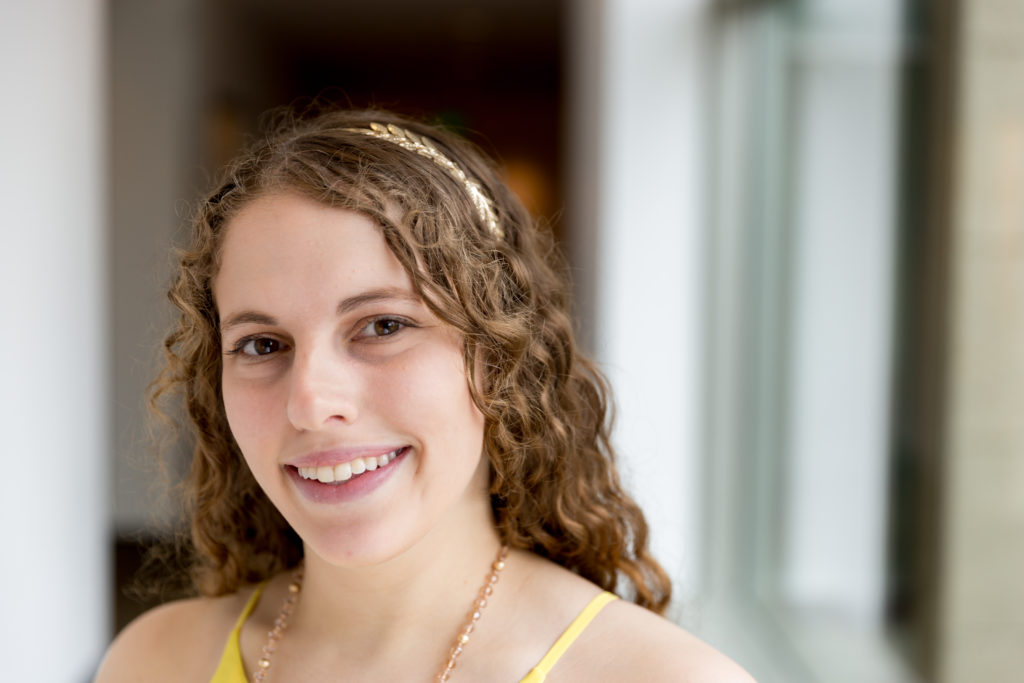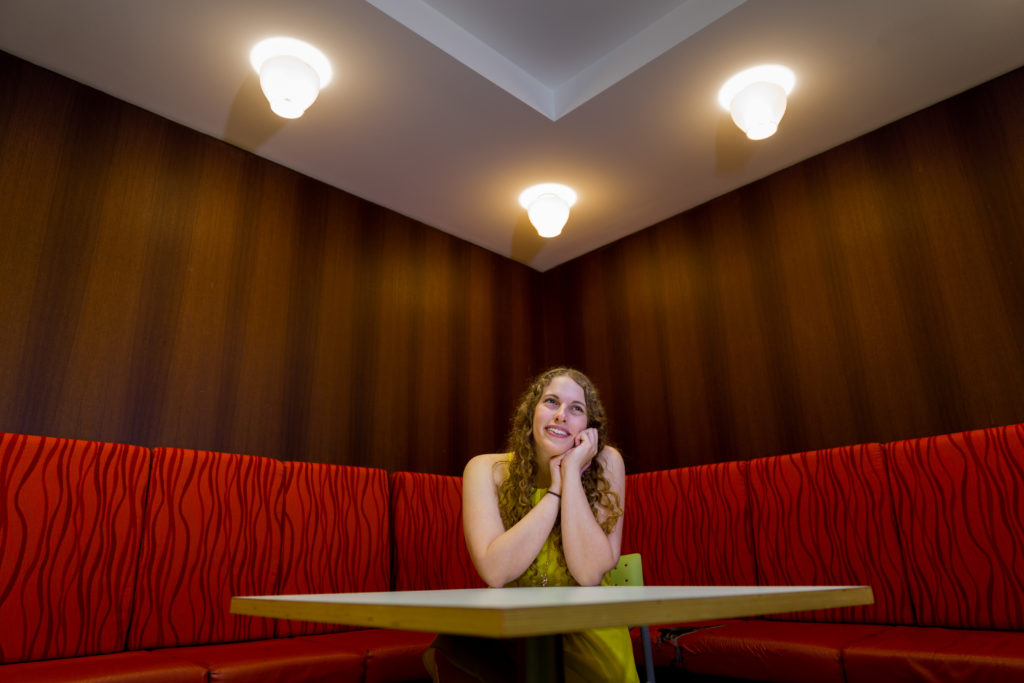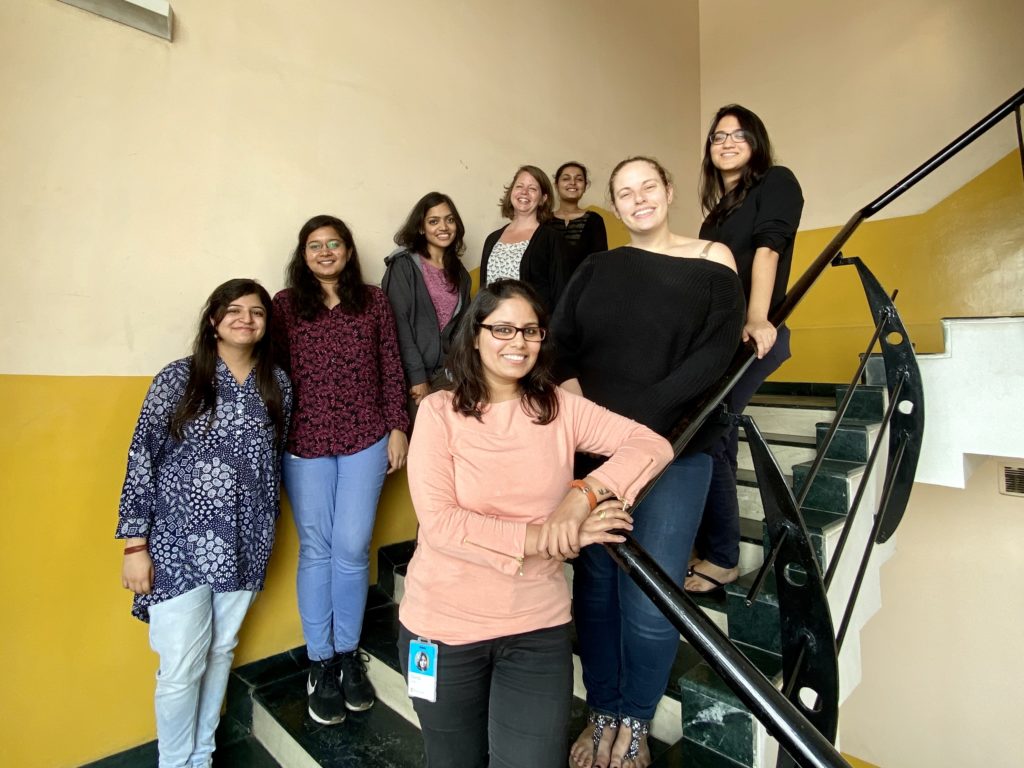
In times like these, Beth Anne Katz is the person to know.
Currently a technical program manager on the PowerPoint team in Sunnyvale, she has contributed to features across Windows and Office, including time spent in the Prague office honing Microsoft’s fastest-growing product, Teams. Prior to that, she majored in Electrical and Computer Engineering, a true standout at Carnegie Mellon University. She interned at Goldman Sachs, Disney, Google, and Microsoft, scoring multiple scholarships.
It’s an impressive resume, one that keeps growing with her recent nomination by the Society of Women Engineers as one of its 2020 Women Engineers You Should Know — and made all the more impressive as someone dealing with the daily struggles of depression.
Advocating for mental health
A few years ago, for the first time in her life, Katz felt free to openly discuss her depression. When she did, she emerged an advocate for mental health, a leader in Microsoft’s global neurodiversity efforts, and a brave, honest chronicler of depression, anxiety, and the need to be heard, seen and supported by one’s employer.
“One of the biggest things that has changed over the last couple years is this concept that you should be able to bring your whole self to work,” Katz says, appreciative of the way Microsoft’s company culture allowed her to be open about her struggle and become an activist for others. “This is a message I’ve seen a lot at Microsoft for years, and it seems to be growing across the industry. For me, it was important to learn to represent myself fully at work. To do that helps you connect with others, because now you’re no longer hiding pieces of yourself.”
According to the CDC, having positive representation of achievement and stories of people going through mental illness can really shape how people understand it. Katz continues educating and helping others that deal with mental illness, especially now as people intentionally isolate to protect each other from the adverse health risks of COVID 19.
”While it has been a positive experience for me because of my phenomenal managers and Microsoft’s inclusive culture, there’s still a lot of work to be done to make the world a safer place for people to come forward. It’s important for organizations and leaders to find ways to create those safe spaces.”

Being present for others
On the surface, measures like social distancing protect our bodies from harm — but as Katz is quick to point out, at a time like this, it’s vital to also protect your mental well-being.
“Broadly, there are a bunch of tangible things a company can do to create a safe space; the first is having spaces where people can discuss these things,” she explains. “Internally at Microsoft, we have multiple Teams channels and email distribution lists for mental health and neuro-diversity — the whole gamut: ADD, ADHD, depression, anxiety and so on. You can talk to people who have them, people who will be supportive.
Specifically, for the here and now, a considerate thing for co-workers and friends to do is make intentional social times. Not just video calls with work things but setting up time where people can sit and work while other people are on a call with them. At a time when everyone is at home, working or otherwise, simply seeing a familiar face can be therapeutic.
During times like these Katz is thankful for what she calls Microsoft’s “superpower”: its ability to do the right thing. “When the coronavirus outbreak started and Microsoft needed less hourly staff, I was delighted to see that we continued to pay hourly workers their regular pay, regardless of hours available,” she says. “Microsoft was also among the first to recommend we work from home before any official orders came out. In my earlier years at the company, I saw Microsoft extend parental leave policies. And I saw how I was wholeheartedly accepted when I came forward with a mental illness. I’m proud of the decisions we make as a company.”

(Beth Anne with coworkers at a women’s luncheon at Microsoft India. Back row, left to right: Himali Bajaj, Vishakha Gupta, Prachi Chouksey, Jen Sillik, Niharika Mukherji; Front row, left to right: Kavita Garg, Beth Anne Katz, Namrata Agarwal)
Taking time to celebrate
In addition to her mental health leadership and mindful advice in the time of coronavirus, Katz also has a day job she does exceptionally well. There are many reasons why she is a person worth knowing and this month the Society of Women Engineers added to the list by nominating her as one of their 2020 Women Engineers You Should Know.
“It’s surreal and amazing,” she marvels. “SWE was one of the first organizations I heard about when I decided to go into engineering in college. I got connected with them right away, and they played a big part in my life getting through college in engineering. And so, being recognized by them is an incredible honor.”
The honor is confirmation not only that Katz has done incredible work in her career, but also evidence that when someone is empowered and supported in embracing their true self in the workplace, they can realize their full potential.
If you are interested in joining Katz and our inclusive Microsoft community, Bay Area job openings can be found here: https://aka.ms/MicrosoftBayAreaCareers.



